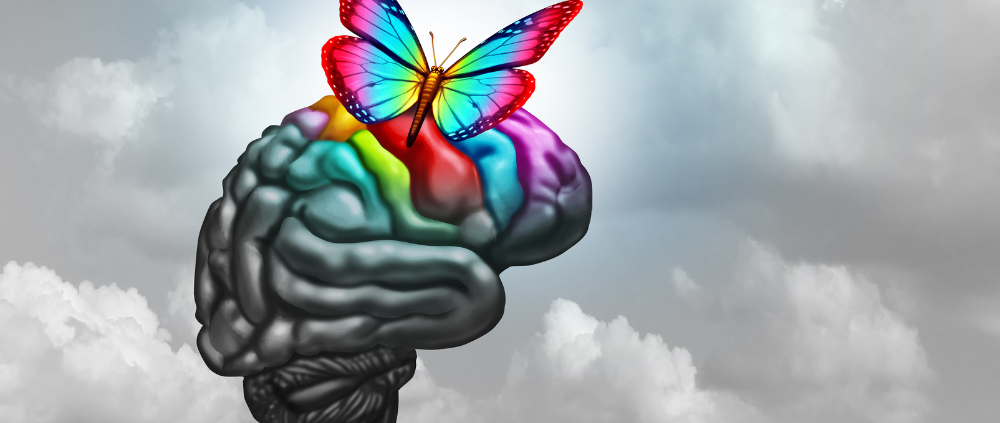Autism Diagnosis Signs and Symptoms
Autism spectrum disorder, as defined by the U.S. Centers for Disease Control and Prevention, is a developmental disability that’s caused by differences that are present in the brain. Those who are diagnosed with ASD typically have challenges with social interaction and communication, and experience repetitive and/or restricted interests or behaviors.
People who have ASD could have different ways that they learn, move or pay attention. That being said, ASD is a very unique and personal disability. In other words, how ASD affects one person may differ significantly from how it affects another.
Like any disability, it’s important to identify it early so that treatment can be provided at a young age. That’s why parents, caregivers and family members should always be on the lookout for the common signs of autism and symptoms of autism.
Table Of Contents
Social Interaction and Communication Skills
Those who have ADS often have challenges interacting socially and communicating. There are three main areas where this could present itself, according to the non-profit organization Autism Speaks.
The first area is social interactions. Those with ADS could have difficulty taking turns while in conversation, sharing their emotions or interests, and fully grasping what others are feeling or thinking.
The second is communication. People with ASD might have difficulty making consistent eye contact; understanding the body language, facial expressions and gestures of others; and regulating the tone of their voice.
The final area is with relationships. People who have ASD could face challenges expressing their feelings and seeking comfort emotionally from other people, making friends or playing with their peers, understanding personal boundaries and space, and feeling overwhelmed while in typical social situations.
Repetitive and Restricted Behaviors
The other major category of signs of autism falls in the behaviors people display. Unfortunately, there is generally a wide range of repetitive and restricted behaviors that people with autism might exhibit.
Autism Speaks points out that to be diagnosed with autism, one must show at least two of the following behavior types.
- Repetitive movements, speech patterns or play: This could include lining the toys in a row, or flipping switches repeatedly. It could also include imitating the speech of other people, or repeating phrases or words.
- A need for a routine or sameness: Those with ASD may exhibit extreme distress even at minor changes in a routine or plans. They also may exhibit ritualistic behaviors such as touching objects over and over again in the same order.
- Interests that are intense or highly focused: This might include someone having extreme knowledge of, or interest in, a specific and often very narrow topic. They also might have a strong attachment to a specific object such as a figurine or toy.
- Sensory stimulation: Many experience sensory differences such as an unusual sensitive to sound, light, texture or touch. They might lack some sensitivity to temperature or pain. And they may exhibit behaviors that seek out sensory experiences, such as touching or smelling objects, or being fascinated with movement or lights.
Signs of Autism in Young Children
There are many different signs of autism and symptoms of autism in younger children. Some things you should look out for include:
- Not responding to their name
- Avoidance of eye contact
- Not smiling back when they’re smiled at
- Getting upset if a certain smell, sound or taste displeases them
- Repetitive movements
- Talking less than other children
- Not engaging in pretend play
- Repeating phrases
Symptoms of Autism in Older Children
The symptoms of autism in older children may be slightly different than in younger children. Tings to look out for include:
- Not understanding what other people are feeling or thinking
- Unusual speech patterns, including repeating phrases
- Getting upset if anything changes from their strict routine
- Taking a keen interest in particular activities or subjects
- Getting upset when being asked to do something
- Showing a preference to not make friends
- Taking things extremely literally
- Finding it challenging to express their emotions
Learn more about Autism Signs and Symptoms
Get an Autism Diagnosis at Blue Gems ABA
Blue Gems ABA is dedicated to helping parents identify the signs of autism and symptoms of autism in their children. We provide early autism evaluations, and applied behavior analysis (ABA) treatment plans for those who are diagnosed with ASD.
Start your child’s autism diagnosis today
There three main steps to our ASD diagnosis process. After initial intake to determine eligibility, a licensed psychologist will perform an evaluation and any subsequent specialized tests such as ADOS.
Any children between the ages of 1 and 5 who have shown symptoms of autism are eligible for the evaluation.
For more information, please feel free to reach out to us today.




